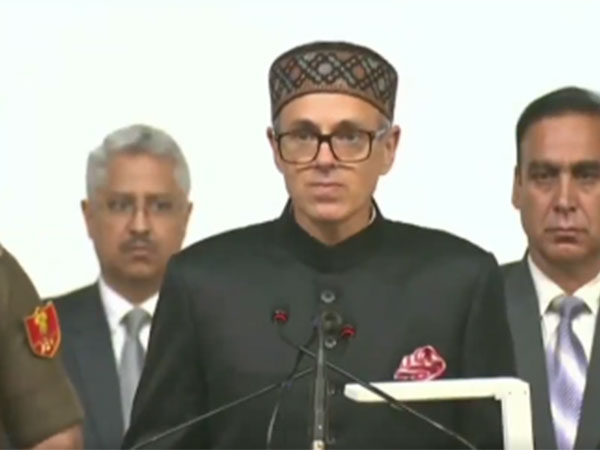Omar Abdullah Retains Ganderbal: A Strategic Move in Jammu and Kashmir Politics
Jammu and Kashmir Chief Minister Omar Abdullah resigned from the Budgam seat to retain Ganderbal, a National Conference stronghold. Abdullah had won both constituencies in the recently held assembly elections. His decision marks a strategic move in the political landscape of the region.

- Country:
- India
Omar Abdullah, the Chief Minister of Jammu and Kashmir, has resigned from his post as the representative for the Budgam assembly seat, electing instead to retain the Ganderbal constituency, a longstanding bastion for the National Conference (NC). The announcement was made by Pro-tem speaker Mubarak Gul in the state assembly on Monday, with confirmation also coming from Ajaz Jan, a Poonch National Conference MLA.
In the recent assembly elections, Abdullah secured victories in both Budgam and Ganderbal. He claimed Budgam by a margin of 18,485 votes over the Peoples Democratic Party's candidate, Aga Syed Muntazir Mehdi. In Ganderbal, Abdullah defeated PDP's Bashir Ahmed Mir by 10,574 votes, cementing his return to a constituency once held by both his father Farooq Abdullah and grandfather Sheikh Abdullah, the founder of the National Conference.
Omar Abdullah, who assumed the role of Chief Minister last Wednesday, emphasized a commitment to minimizing public inconvenience and has directed police to avoid creating 'green corridors' for his travel. His swearing-in at the Sher-i-Kashmir International Conference Centre in Srinagar was conducted by LG Manoj Sinha, and included Surinder Kumar of Nowshera as Deputy Chief Minister, supported by other ministers within the NC-led government bolstered by the INDIA alliance.
Abdullah previously served as chief minister from 2009 to 2015. The National Conference, in a coalition with the Congress as part of the INDIA bloc, secured a majority with 42 seats, while Congress won 6 seats in the recent elections. The BJP also made significant gains by winning 29 seats. Other victories included 3 seats for the Peoples' Democratic Party, and single seats for People's Conference, CPI-M, and AAP. Seven seats were captured by independents.
The elections, conducted in three phases, concluded on October 8, marking the first electoral process in the region since the revocation of Article 370 in August 2019, which had previously granted special autonomy to Jammu and Kashmir.
(With inputs from agencies.)
ALSO READ
Vijay's TVK Aims for Power Shift in Tamil Nadu's 2026 Assembly Elections
Tamil Nadu BJP Strategizes for Crucial 2026 Assembly Elections
Mehbooba Mufti Criticizes National Conference for Ignoring Key Issues
Waheed Para Criticizes National Conference's Focus on Bureaucratic Transfers Over Key Issues
National Conference Aims to Bolster India’s Statistical Systems at All Levels










